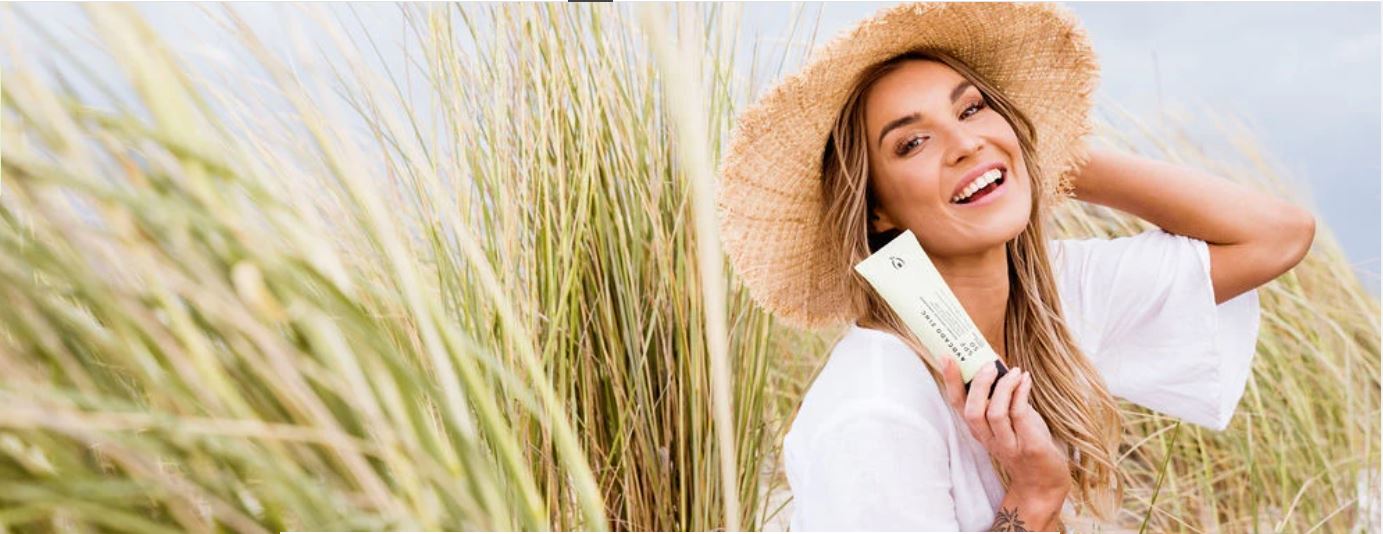Your Cart is Empty
Free shipping in australia and nz over $150. use code welcome 10 for 10% off your 1st order.
Written by Ellen Casey
Recently, Hawaiian lawmakers passed a bill banning the sale and distribution of sunscreens containing oxybenzone and octinoxate, chemicals thought to be harmful to the ocean’s coral reefs. The ingredients can potentially increase coral’s susceptibility to bleaching, and up to 14,000 tons of sunscreen reportedly end up in coral reefs every year.
Oxybenzone and octinoxate are two of the most popular ingredients in chemical sunscreens ― that is, sunscreens that use chemicals as the active ingredient. Chemical sunscreens dominate the shelves at most drugstores and rely on a chemical reaction to protect skin from the sun’s rays.
That got us thinking: If oxybenzone and octinoxate can cause harm to coral, what are they doing to our bodies?
Before you read too far, it’s important to note that sunscreen isn’t solely to blame for damaging the world’s coral. The National Oceanic and Atmospheric Administration says top threats to coral reefs include global climate change, unsustainable fishing and land-based pollution.
But chemical sunscreens could have other harmful effects. “We’ve been raising the concerns about the use of oxybenzone in sunscreens for probably at least 10 years,” David Andrews, senior scientist with the advocacy organization Environmental Working Group, told HuffPost, noting that EWG recommends consumers avoid it whenever possible.
According to EWG, oxybenzone has been detected in nearly every American’s blood. Studies have shown that oxybenzone may have an impact on the endocrine system (the glands in your body that make hormones), Andrews said, adding that in one instance, increased levels of oxybenzone in adolescent boys led to lower testosterone levels. Octinoxate may have a similar range of concerns associated with it, Andrews said, noting that there are fewer studies and less research to back up those claims. For that reason, much of the research focuses on oxybenzone.
Andrews acknowledged that evidence from these studies hasn’t been 100 percent conclusive, but added, “We think it raises enough concern that it should be avoided.”
“We do think there are alternative sunscreens available that will avoid this concerning ingredient,” he said.
That’s true. There are sunscreens on the market that use minerals (generally zinc oxide and/or titanium dioxide) as their active ingredients. These sunscreens are known as physical blockers; they actually block the sun’s rays from penetrating the skin, as opposed to relying on a chemical reaction like chemical blockers.
Avocado Zinc makes sunscreens without oxybenzone and other potentially toxic chemicals.
“Science has shown that UV absorbers (chemical actives) cause unnecessary harm to human and aquatic systems. They are known toxins with studies that have revealed the development of cancer, endocrine and reproductive disruption and DNA mutation. To achieve optimal effectiveness with sunscreens, non-nanoparticle zinc oxide is the best option. It is an FDA-approved active mineral ingredient, and on its own, it provides safe broad spectrum UVA/UVB protection.
I for one hope that the rest of the sunscreen industry will “follow science and be leaders in protecting our skin from harmful rays while also formulating what’s best for human health and helping preserve critical watershed ecosystems.”
It should be noted that both oxybenzone and octinoxate are FDA-approved chemicals for providing protection against the sun’s rays. As Dr. Jody Levine, director of dermatology at Plastic Surgery & Dermatology of NYC, said, “According to the FDA there is no definitive data showing that any of these ingredients are harmful to our health.”
Dr. Jennifer MacGregor, a board-certified dermatologist at Union Square Laser Dermatology in New York, agreed, saying despite some claims that chemical sunscreens may be bad for health or even cause cancer, “there is no evidence based on good scientific studies that this is true.”
In Levine’s opinion, banning the sale of chemical sunscreens might deter people from wearing sunscreen altogether, as they may be less likely to seek out other options.
“It’s putting a stigma on these ingredients and these ingredients are necessary for broad-spectrum protection,” she said. “That’s going to place the public at a greater risk for skin cancer. Unprotected sun exposure is the most preventable risk factor for skin cancer.”
Both Levine and MacGregor were in agreement regarding the efficacy of chemical sunscreens in protecting our skin from the sun and didn’t raise any concerns about using them. However, they both said they prefer to use physical sunblock (those are the ones with minerals like zinc oxide as active ingredients), noting that it provides great protection against both UVA and UVB rays, whereas not all chemicals in chemical sunscreens block both. (Oxybenzone does, though, Levine noted.) Physical blockers also tend to be less irritating to the skin, both doctors said.
The main takeaway here should be that you should always wear sunscreen when exposed to the sun. That is the No. 1 rule. The kind you use is up to you, at least until Hawaii’s ban takes effect in 2021.
But if you’re still concerned about the possibility of your sunscreen harming coral in the oceans or your own body, opt for a physical blocker like Avocado Zinc's Natural Sunscreen with SPF 50 that will protect you from both UVA and UVB rays whilst also being very gentle and nourishing for the skin.
The only bad thing, Levine said, is not using enough sunscreen or failing to reapply it throughout the day.
And as MacGregor said, “While there is no evidence that the use of sunscreen is harmful, there is very well-established evidence that exposure to UV radiation is associated with the development of skin cancer and regular sunscreen use mitigates this risk.”
Your Summer Essentials for Glowing Skin.


